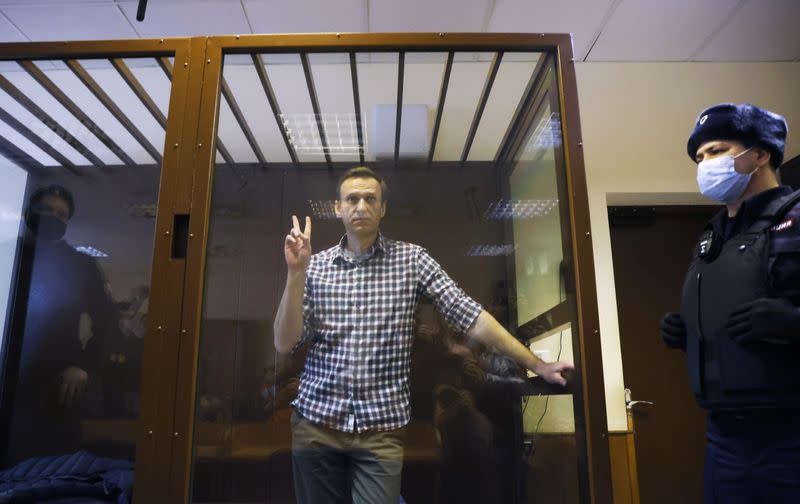MOSCOW (Reuters) – Amnesty International no longer considers imprisoned Kremlin critic Alexei Navalny a “prisoner of conscience” because of previous comments he has made that qualify as advocacy of hatred, the group said.
However, Amnesty International still believes that Navalny should be released from prison, that he has not committed a crime and that he is being prosecuted for his campaign and outright criticism of President Vladimir Putin and his government.
The 44-year-old Russian opposition politician was flown to Germany last August to recover from near-fatal poisoning in Siberia, which many Western countries said was a nerve agent.
He was arrested last month on his return to Russia and sentenced to jail for parole violations he called fabricated. He will spend a little over two and a half years behind bars. The West has demanded his release; Russia says that is an interference.
“Amnesty International took an internal decision to stop referring to … Navalny as a prisoner of conscience in connection with comments he has made in the past,” the group said in a statement sent to Reuters on Wednesday.
“Some of these comments, which Navalny has not publicly denounced, are reaching the threshold of advocacy for hatred, and this is contrary to Amnesty’s definition of a prisoner of conscience,” he added.
Amnesty, which had called Navalny a “prisoner of conscience” on January 17 following his arrest, did not indicate what comments it was referring to and said it was not aware of any similar statements he had made in recent years.
Navalny, who has launched another campaign against official corruption, has been criticized for past nationalist statements against illegal immigration and for attending an annual nationalist march several years ago.
In a 2007 video, he called for the deportation of migrants to prevent the rise of right-wing extremist violence. “We have a right to be (ethnic) Russians in Russia. And we will defend that right,” he said in the video.
Navalny could not be reached for comment because he was in prison. His allies protested on Twitter against Amnesty’s decision.
Alexander Golovach, a lawyer for Navalny’s FBK anti-corruption group, said he was renouncing an earlier “prisoner of conscience” status given to him by Amnesty in 2018 to protest.
Ivan Zhdanov, a Navalny ally, said, “The procedure for granting and withdrawing Amnesty International status has proved extremely shameful.”
(Reporting by Tom Balmforth; Editing by Nick Zieminski)
